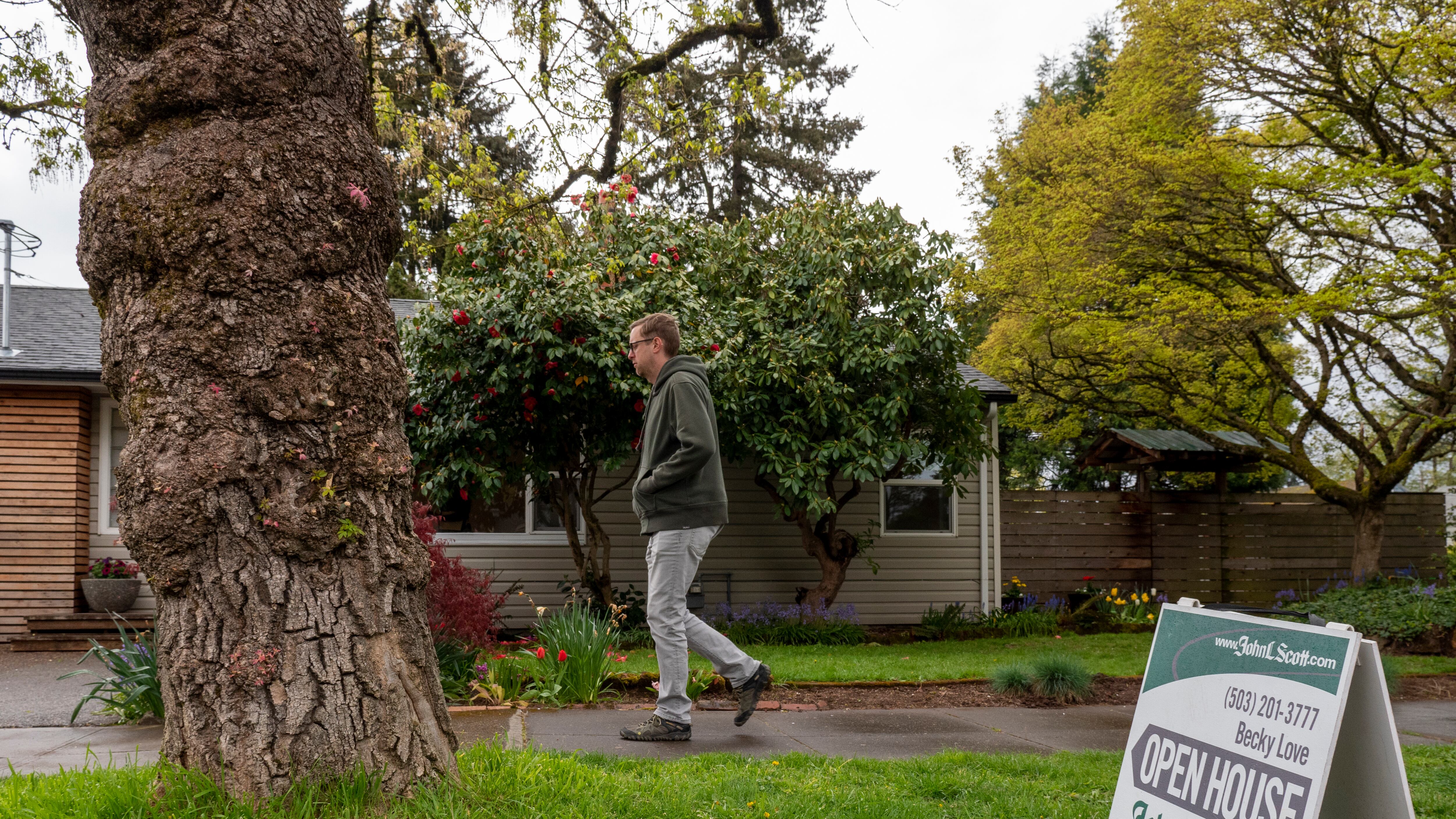The Oregon Realtors on Friday released results of a new poll that the group commissioned to show how Oregonians feel about housing.
The simple and unsurprising answer: Residents of this state want more housing, they want it to be cheaper, and if given the choice, they’d like to live in a single-family home.
The poll, conducted for the Realtors by the firm American Strategies last month, found that Oregonians are struggling to pay their rent and mortgages, are unhappy with the direction of the state and both parties, and want a place of their own.
“There is a clear preference for living in a single-family home: almost nine-in-ten say that living in a detached single-family home is either very important (63 percent) or somewhat important (22 percent) to them,” American Strategies concluded. “When forced to choose, a majority place greater importance on building additional homes that are affordable, versus protecting the environment and fighting climate change.”
State Sen. Mark Meek (D-Gladstone), who is a real estate agent and property manager in his day job, says the poll’s findings are clear: “People want privacy and they want a yard and they want to live near their kids’ schools.”
The Realtors published the poll ahead of the even-year, 35-day legislative session that starts Feb. 5. They did so in part because increasing housing production, along with the debate over Measure 110, will be the session’s largest focus—and fight.
Gov. Tina Kotek has made increasing housing production to 36,000 units a year a major goal of her administration. Kotek has found an unlikely ally in the Realtors, who contributed $560,000 to former state Rep. Christine Drazan (R-Canby), Kotek’s Republican opponent in 2022.
But Kotek and the the Realtors want the same thing now: more housing of all types. Kotek teamed up with the Oregon Realtors and the Oregon Home Builders Association in 2023 to push for a one-time expansion of cities’ urban growth boundaries to provide new land for housing development. The bill that contained the expansion, House Bill 3414, led to late-session fireworks and resulted in an unusual defeat for Kotek.
Environmentalists spiked the 2023 bill because, they argued, the proposed UGB expansion was excessive and ignored large quantities of developable land already inside UGBs. Kotek’s staff met with both sides of the debate after the session ended, and the proposal she’s put forth for February in her housing bill again includes a one-time UGB expansion but this time with restrictions not present in the 2023 bill. Any city that wants to expand its UGB would have to first prove that the expansion is necessary—i.e., that there isn’t land available already—and it would have to commit to ensuring that 30% of the new development meets affordability requirements.
“Within any expansion areas, 30% of all housing units must be legally restricted for affordable housing,” Kotek’s office said in a statement. “A 30% requirement in Oregon would be one of the strongest requirements in the country. Oregon has a critical need for guaranteed affordability, as existing land within UGBs (outside of Portland) has no affordability requirement.”
But on Jan. 29, the Oregon Conservation Network dropped a preemptive bomb on Kotek’s plan. The group, which includes more than 40 environmental organizations, killed HB 3414 last year over the UGB expansion and told the governor that even with the changes she’d made, it considers her new bill a “major threat.”
(The OCN is led by the Oregon League of Conservation Voters, whose PAC gave Kotek $1.46 million in 2022.)
“The Oregon Conservation Network has voted to make SB 1537 a Major Threat to a Healthy Oregon,” the Jan. 29 letter to Kotek and lawmakers says. “We did not make this decision lightly. This letter is intended to clarify our position that the large urban growth boundary expansions allowed in the bill are detrimental to urgently solving our affordable housing crisis and to our state’s environmental values. OCN opposes the bill until the UGB expansion provisions are amended.”
The group likes most of what Kotek wants to do: money to finance new housing and infrastructure, incentives for climate-friendly construction, and the 30% set aside for affordable housing if there are to be UGB expansions. By including the requirement that cities prove expansions are needed, Kotek satisfied one of the OCN’s major objections, but the group says it wants her to decrease the allowable increase from either 150 or 75 acres to 15 acres.
“If the large acreage expansion is removed but the smaller provision remains as is, OCN will remove the Major Threat status of this bill,” the letter concludes.
Kotek’s staff responded to the letter with one of its own to lawmakers on Jan. 30. That letter noted Kotek staffers had been meeting weekly with OCN representatives and found the OCN major threat designation “a surprise and outside of the process agreed to that is currently underway.”
“The governor will continue to work with [key lawmakers] and stakeholders to find a middle ground on the acreage amount and hopes that others will continue to stay at the table and dialogue in good faith,” the letter concluded.
Dave Hunnicutt, president of the Oregon Property Owners Association and a lawyer who has spent decades pushing to make more land available for development, says the Legislature should listen to the needs Oregonians express in the Realtors’ poll.
“Our land use system was never designed to prevent the development of new housing,” Hunnicutt says. “But the process is broken.” Hunnicutt says the high price of housing reflects a shortage of land available for development. “What you’re left with,” he says, “is just a math problem.”

